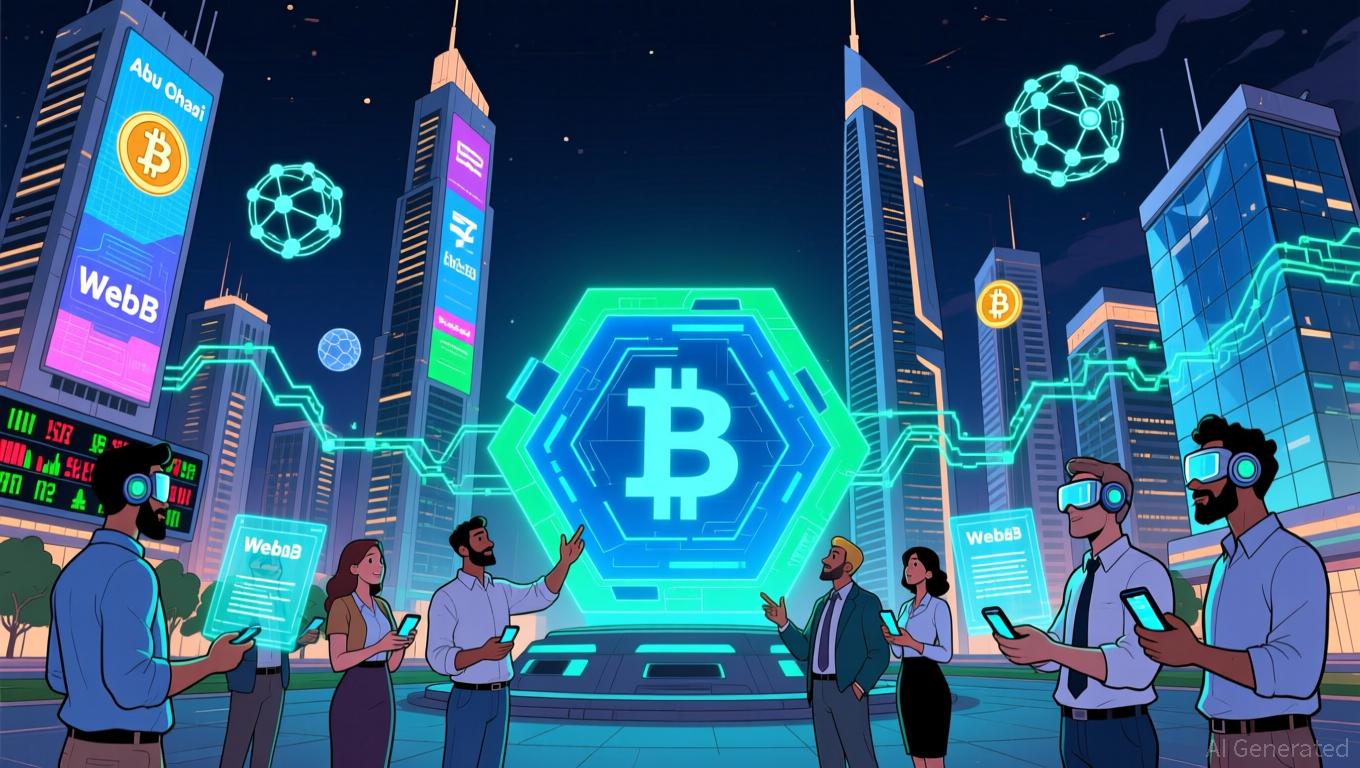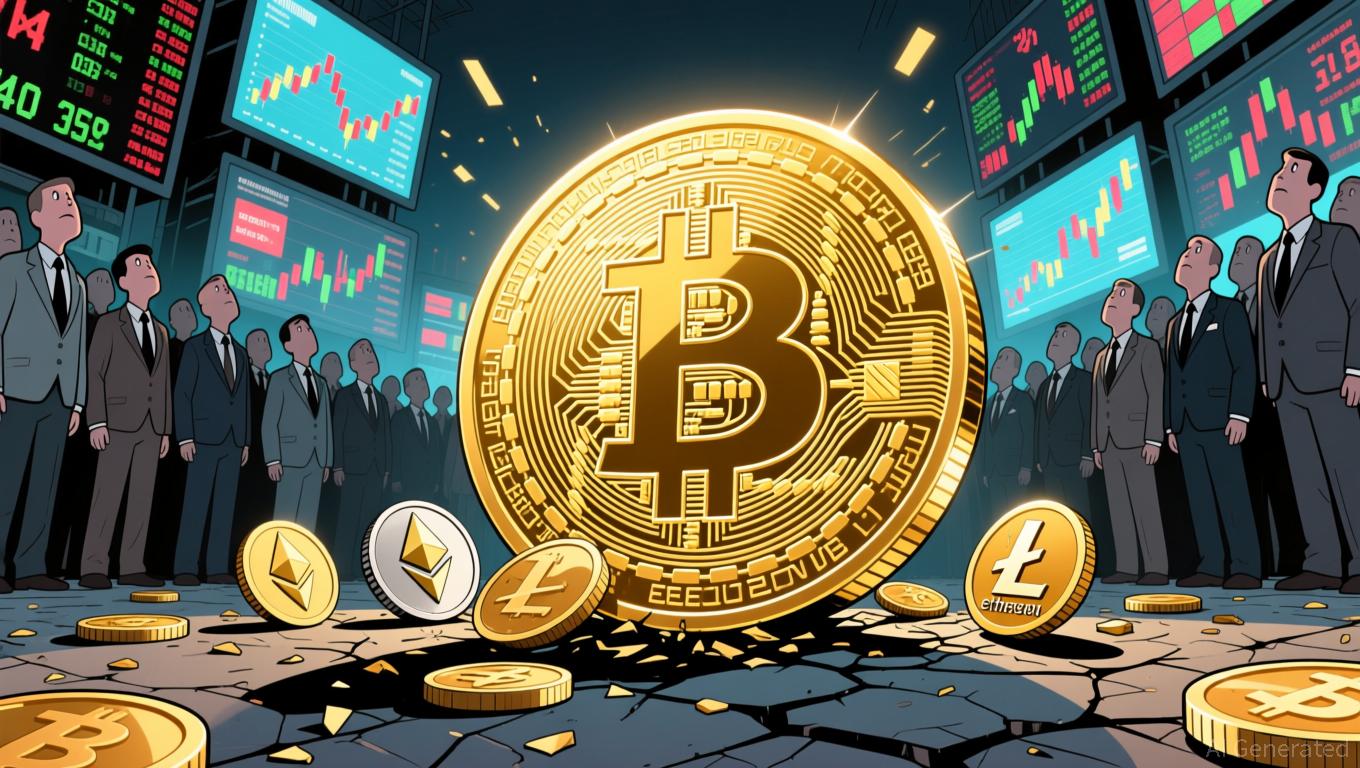TWT's Updated Tokenomics Framework: Transforming DeFi Governance and Enhancing Investor Yields
- Trust Wallet's TWT token redefines DeFi governance through utility-driven value creation, deflationary supply, and community governance in 2025. - Permanent burning of 88.9 billion tokens creates scarcity, while gas discounts, collateral capabilities, and governance rights align utility with platform adoption. - Hybrid investor returns combine scarcity-driven appreciation, staking yields, and fee-burn mechanisms, but depend on Solana ecosystem performance and utility adoption. - Challenges include fragme
Token Distribution Overhaul: Emphasizing Utility and Rarity
The 2025 tokenomics plan for TWT moves away from speculative rewards and centers on practical use cases. A key part of this shift was the irreversible burning of 88.9 billion tokens soon after its 2020 debut,
The token’s usefulness is further increased by its role in essential platform operations. TWT owners now benefit from
Governance Structure: Strengthening Holder Influence and Incentive Alignment
While decentralized governance is a core principle of DeFi, it often suffers from low engagement or dominance by major holders. TWT’s 2025 framework aims to resolve this by making governance an integral part of the token’s function. Token holders are empowered to vote on matters such as platform improvements, fee models, and ecosystem collaborations,
Aligning incentives is crucial. By connecting governance involvement with token benefits—like
Investor Benefits: A Comprehensive Value Approach
For those investing in TWT, the tokenomics introduce a multi-layered return system. The deflationary supply, together with a loyalty initiative that reallocates rewards from the current token pool,
These elements point to a blended return model: price growth from increased scarcity, earnings from staking and governance, and demand driven by practical platform use. Nonetheless, the effectiveness of this model relies on ongoing adoption of TWT’s features and the overall strength of the

Potential Obstacles and Points to Consider
Despite TWT’s forward-thinking design, it faces several challenges. The success of its governance relies on broad user involvement, which can be tough in the diverse DeFi sector. Moreover, TWT’s performance is indirectly linked to the stability of the Solana blockchain, exposing it to external risks. Investors should also consider the balance between utility-based value and price volatility, as DeFi tokens are still vulnerable to economic trends and regulatory changes.
Final Thoughts
The 2025 tokenomics of TWT represent a significant rethinking of DeFi governance and investor incentives. By rooting value in utility, scarcity, and active community involvement, the model tackles major industry challenges. However, its long-term viability will depend on effective implementation—especially the ability to grow utility adoption and strike a balance between innovation and stability. For investors, TWT stands as an intriguing example of how thoughtful token design can reshape the DeFi sector.
Disclaimer: The content of this article solely reflects the author's opinion and does not represent the platform in any capacity. This article is not intended to serve as a reference for making investment decisions.
You may also like
Animoca Connects Conventional Finance and Web3 Following UAE Authorization
- Animoca Brands secured in-principle approval from Abu Dhabi's FSRA to operate as a regulated fund manager in the UAE's ADGM digital asset hub. - The conditional approval enables the Web3 investor to establish a collective investment fund, aligning with its institutional-grade digital asset expansion strategy. - The move complements Animoca's $1B valuation reverse merger with Currenc Group , aiming to re-enter public markets after 2020's delisting. - ADGM's regulatory framework requires firms to meet capi

Bitcoin Updates: Bitcoin Jumps 60%—Sign of Market Evolution or Monoculture Danger?
- Bitcoin's market dominance nears 60% as altcoins lag amid regulatory pressures and shifting investor preferences toward stability. - U.S. investigations into Bitmain's mining hardware and proposed Bitcoin adoption policies highlight regulatory and institutional risks reshaping the sector. - Macroeconomic uncertainties and MSCI's crypto index exclusion plans intensify Bitcoin's appeal over altcoins, with critics warning of forced sell-offs. - While Bitcoin outperforms gold in appreciation potential, its v

Blockchain and AI Empowering SMEs to Compete Equally in International Trade
- Ant Group's Eric Jing proposed blockchain smart contracts and AI to address SME income distribution challenges at Singapore FinTech Festival 2025. - Blockchain infrastructure enables real-time, transparent revenue sharing among collaborative agents, with digital currency enhancing trustless transactions. - AI tools like Antom Copilot and EPOS360 streamline SME operations, while MAS partnerships through sandboxes advance blockchain-based trade solutions. - Projects like Guardian (tokenized money) and Path

Bitcoin Updates Today: Bitcoin Holds Firm While Investors Navigate Policy-Related Uncertainty
- Trump's 40% tariff exemption for Brazilian coffee/beef eases U.S.-Brazil trade tensions, stabilizing global commodity markets amid political clashes. - Lula's firm stance secures Brazil's agricultural exports, boosting domestic political standing while avoiding inflation spikes in U.S. food markets. - Bitcoin maintains stability at $82,000 despite Trump's tariff-driven volatility, reflecting investor confidence in decentralized assets as policy hedges. - Tariff exemptions highlight limits of U.S. economi